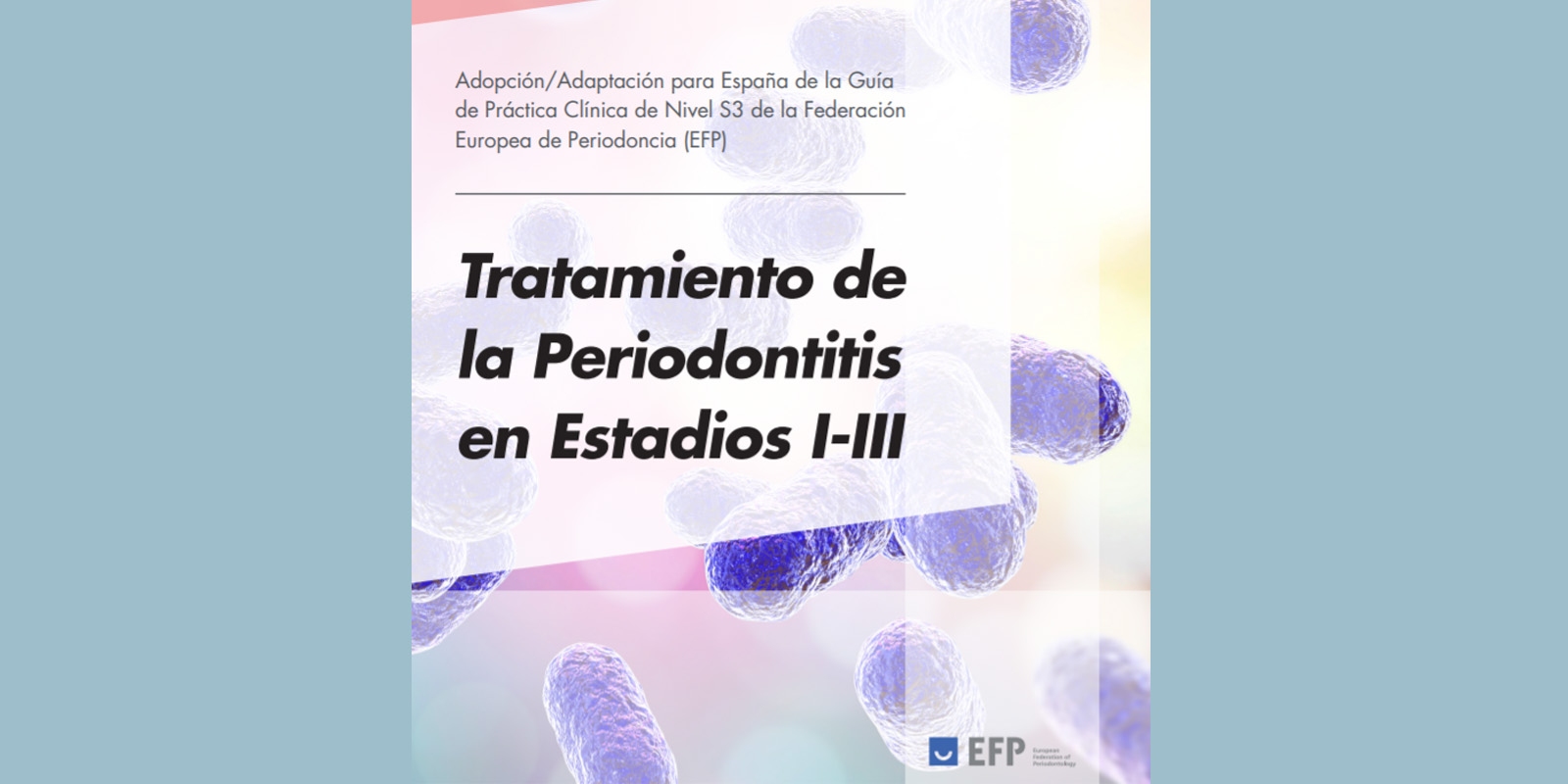DENTAID EXPERTISE
News for dentistry professionals
To face diabetes, teamwork
02 Mar 2021

Oral healthcare professionals, keys in the prevention and detection of this disease.
For a number of reasons, the dental practice can become a key player in the prevention and care of diabetes. Dental professionals can partner with medical professionals in the early detection of those who have pre-diabetes or diabetes and are unaware of their condition; but in addition, the dental clinic can become a place where a patient diagnosed with diabetes can be appropriately cared for, with the aim of playing a part in management of glycaemic control and prevention of associated complications.
The collaboration of experts from the Spanish Diabetes Society (SED) and the Spanish Society of Periodontology (SEPA) has led to a specific working group on ‘Diabetes and Periodontal Disease’ and is facilitating the exchange of experience and opinions in order to explore and enhance the role that an entire dental team can play in the prevention and early detection of diabetes, as well as in caring for people who already suffer from this metabolic disease.
A privileged place
A dental clinic can be a general health care point for several reasons, and one of the most important is that it checks patients regularly, especially patients with periodontal diseases. As highlighted by Dr Cristina Serrano Sánchez-Rey, a Master in Periodontology from the Complutense University of Madrid (UCM) and the Secretary of the SED-SEPA Working Group, “patients are more used to going to the dentist regularly than to the doctor. If the oral health team has managed to adequately motivate patients with periodontitis, they will attend their periodontal check-up appointments every 3-6 months.”
Along with that, Dr Juan Girbés Borrás, a specialist in Endocrinology and the coordinator of the Working Group, highlights that “many common diseases are silent—like diabetes or arterial hypertension—especially in the first years, so the patient may suffer from one of these conditions and yet believe they are healthy. In addition, many smoke, and although they know it is not a healthy habit, they are not able to give it up by themselves: they need information and repeated motivation.”
Given those conditions, the dental clinic becomes an important stronghold in the fight against diabetes, even more so if one takes into account the extent to which the metabolic disease is linked to certain gum diseases, such as periodontitis.
Personalized teamwork
If we take all of that into account, in the words of Dr Cristina Serrano “the work of the dental team in the prevention of both diabetes and the complications associated with the disease can be extremely important.” In fact, in the opinion of Dr Juan Girbés, “the oral healthcare team can collaborate with doctors in the prevention of the development or progression of diabetes by maintaining oral health, fostering healthy lifestyles and by using integrated medical-dental care devices at the clinic, where the patient benefits most from improvements in their health and quality of life.”
The dental healthcare team can thus perform a number of actions depending on the type of patient:
Actions aimed at all patients
One of the most important missions of the oral healthcare team is health education, aiming at teaching proper dental and interdental oral hygiene techniques, as well as giving information about the link between oral and systemic health, and in particular between oral health and diabetes.
The oral healthcare team can also provide information on healthy habits. In this regard, it can recommend generally to all patients that they should reduce their daily intake of refined sugars to 50gr/day, which on one hand can reduce the risk of tooth decay but will also have an impact on the reduction of both obesity and insulin resistance produced by excess sugar, thus helping to prevent diabetes and cardiovascular disease.
Another very important preventive function dentists and hygienists can have is telling children and adolescents about the harm smoking does before they start, since it is an important risk factor for periodontitis, as well as for diabetes, cardiovascular disease and cancer.
Action for those with risk factors
Many of the those who go to the dental clinic may not have diagnosed diabetes, but they do have a series of risk factors; some cannot be modified, such as their genetic background. But others can, as in the case of pre-diabetes, being overweight/obese—especially associated with elevated waist circumference—high blood pressure in excess of 140/90 mmHg, high lipid counts—i.e. total cholesterol and triglycerides, especially if HDL is low—and smoking.
“Many of these risk factors are also common to periodontitis, and their modification is an integral part of periodontal treatment”, indicates Dr Cristina Serrano. Therefore, this expert adds that “changing habits can be an opportunity to control not only the factors related to oral disease, but also to act in preventing other types of diseases like diabetes.” In such cases, the oral healthcare team can play a key role in secondary or tertiary prevention.
For example, patients who have a diet rich in refined sugars and saturated fats, considered pro-inflammatory foods, should know that besides an increased risk of tooth decay, the habit can also predispose to greater inflammation of the gums. In those cases, suggests Dr Juan Girbés, “it may be recommendable that they reduce their intake of sugars, as well as increasing their intake of fresh fruits and vegetables, which can improve their response to periodontal treatment and which are of course a very important factor in the prevention of diabetes.”
The overweight and the obese have twice the risk of presenting periodontitis; thus “nutritional advice on obesity is justified at the dental practice and should be done in collaboration with other healthcare professionals such as doctors and nutritionists, especially if the patient is at risk of diabetes or cardiovascular disease,” highlights Dr Girbés.
Likewise, there is epidemiological evidence of greater predisposition to suffering periodontitis in those with metabolic syndrome. Regarding associated signs, such as hypertension or elevated blood lipids, intervention studies have shown that after periodontal treatment, certain related blood parameters such as C-reactive protein, blood pressure, total cholesterol or triglycerides are reduced, which is why it is suggested that periodontal treatment may have the potential to improve certain anomalies related to this syndrome.
Regarding smokers, dentists have the opportunity to motivate them to give up smoking, since they can show them in their own mouths what alterations may be associated with tobacco, such as periodontitis, receding gums, and implant placement failures that may occur, or pre-malignant lesions, such as leucoplakia, which may even evolve into oral cancer. “Treating tobacco dependence is an important part in the management of oral diseases”, claims periodontist Cristina Serrano.
Another risk factor for diabetes is periodontitis. Patients with advanced periodontitis tend to have higher glycosylated haemoglobin levels than patients without periodontitis, and to suffer from diabetes in the following years. According to Dr Juan Girbés, “we already know that proper treatment for periodontal disease can improve blood glucose values and prevent the development of diabetes.”
Action for those with diagnosed diabetes
In patients with diagnosed diabetes who come to the clinic for the first time, a complete medical history should be taken, including glycaemic control and a record of any type of complication associated with diabetes.
That should be followed by a complete periodontal examination. “If the patient does not present with periodontal disease, it should be explained to them that because of the diabetes, they have greater predisposition to gingivitis and periodontitis and that it is therefore necessary for them to keep excellent dental and interdental hygiene—which they should be taught to perform correctly—and that it will be necessary to establish a preventive dental hygiene programme to prevent its onset, at least once a year,” warns Dr Cristina Serrano.
If there is periodontitis, the risk of blood sugar getting out of control and showing complications associated with diabetes in the future is greater, so it is necessary to manage the periodontitis through treatment consisting of proper oral hygiene technique, and scaling and planing the root surfaces under the gum. “It is important to carry out this treatment whether or not there is good glycaemic control, because it has been shown that eliminating infection and inflammation of the gums will help control glycaemia, thereby reducing the percentage of glycated haemoglobin,” advises the SEPA expert.
Periodontal surgery and dental implant treatments are indicated as long as there is adequate glycaemic control. They should otherwise be avoided, as healing will be impaired and there will be a greater risk of infection.
In patients who have lost teeth, either to decay or periodontal disease, once infection has been controlled it is very important that the teeth are replaced, so that the patient can chew properly and consequently maintain good nutrition, essential in the case of diabetes.
Dentists should also be aware of and treat other oral disorders associated with diabetes, such as dry mouth—which is related to hyperglycaemia and certain treatments—or burning mouth syndrome.
Dr Cristina Serrano advises that “all patients with diabetes should receive a personalised oral hygiene regime and individualised counselling based on the risk factors they present”. In addition, she recalls that “children and adolescents with type 1 diabetes should be examined at least once a year to prevent the appearance of periodontal diseases.” She concludes that “it is essential to understand that patients with diabetes and periodontitis will need oral care throughout their lives.”
RELATED ARTICLES

17 Feb 2022
EuroPerio Series: professional discussions and scientific exchange
To keep the global perio community up to date with the latest research findings as well as give a taster of what is to come at EuroPerio10, the…

21 Jan 2022
Xerostomia in COVID-19 positive patients: clinical considerations
Severe Acute Respiratory Syndrome Coronavirus 2 (SARS-CoV-2) the cause of the pandemic known as COVID-19, affects different organs and systems (lungs,…

20 Jan 2022
A guide adapted to Spain to optimise the approach to periodontitis
There are currently numerous clinical practice guidelines to direct the treatment of many systemic diseases (such as diabetes, depression,…
Sign up for the DENTAID Expertise newsletter
Sign up for the newsletter